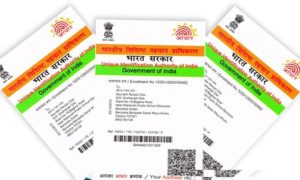As we welcome the new year, it is crucial to keep ourselves informed about the latest updates in the world of online banking and payment transactions.
Read More: LPG Users To Receive Rs 50 Lakh Accident Insurance Cover At No Extra Cost
With this in mind, it is worth noting the recent implementation of new UPI rules designed to improve the overall experience of online banking and transactions.
These new rules are aimed at ensuring more secure and efficient online transactions, making it easier for individuals to carry out transactions with confidence and peace of mind.
To make the platform more secure, the Reserve Bank of India (RBI) has introduced some measures that come into effect on January 1, 2024.
1. Deactivation of inactive UPI IDs: NPCI has directed payment apps to deactivate UPI IDs that haven’t been used for over a year. This aims to curb fraudulent accounts and streamline data management.
Read More: Petrol, Diesel Fresh Prices Announced For January 5: Check Fuel Rates In Your City
2. UPI for the secondary market (Beta phase): This pilot program allows blocking funds post-trade confirmation and settling payments via Clearing Corporations through UPI. This could revolutionise securities trading settlements.
3. Increased transaction limit for hospitals and educational institutions: RBI has raised the per-transaction limit for payments to hospitals and educational institutions from ₹1 lakh to ₹5 lakh. This simplifies large fee payments like college tuition or hospital bills.
4. Exploration of UPI ATMs and tap-and-pay: NPCI is exploring futuristic features like withdrawing cash using QR codes at ATMs and making contactless payments via phone tapping. While not yet confirmed, these additions could further expand UPI’s reach.
Read More: A Minimum 650 CIBIL Score Is Needed For Bank Job: IBPS
5. 4-hour window: To make UPI transactions safe, RBI has proposed a four-hour time limit for users initiating first payments over Rs 2,000 to new recipients. This has added a layer of control and security as it also allows users to reverse or modify transactions within that window.





































